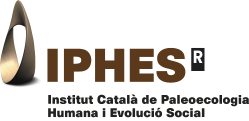RRI Committee
Since its origins, IPHES has been aware of the importance of bridging the gap between research and society, being a pioneering institution in the socialisation of research in human evolution and paleoecology.
Therefore, IPHES also cares about incorporating the Responsible Research and Innovation (RRI) perspective in their activities, fostering the alignment of its research with the needs, values, and societal expectations through an open, respectful, inclusive and stakeholder’s involvement research. For this purpose, and in the framework of its recognition as a Maria de Maeztu Excellence Unit, IPHES has created an RRI Committee to encourage embedding 6 policy agendas in its research process and face great social challenges.
In this spirit, IPHES also establishes its commitment to the Agenda 2030 and the incorporation of the ONU Sustainable Development Goals (SDG) in its research lines and actions.
Gender
IPHES implements their gender mainstreaming strategy through three main actions:
- Eliminating the bias in the recruitment, promoting balanced teams, women leadership and formation between genders as a strategic axis in achieving greater efficiency, innovation, and competitiveness. All this under the umbrella of IPHES Plan for Equal Opportunities for women and men included in Human Resources Strategy for Researchers Action Plan (HRS4R Action Plan). IPHES also has an Equality Commission that developed a procedure for resolving sexual harassment conflicts at workplace.
- Fostering the gender dimension integration in its research. In particular, exploring different lines of research that include biological sex as a proxy for gender to understand shifts of sex/gender-based divisions of labour.
- Making gender topics in prehistory and women scientists more visible through different events and programmes in collaboration with other research institutions.
Ethics
IPHES pursues applying ethical principles in research, such as the standards of research integrity set out in the European Code of Conduct for Research Integrity and CERCA Code of Conduct. We value honesty, rigour, and transparency and quality of research. We do not tolerate falsification, plagiarism, or other types of research misconduct.
Due to these efforts, IPHES has been given an HR Excellence in Research award that shows its commitment to the European Charter for Researchers and Code of Conduct for the Recruitment of Researchers. We adopt the standards of the European Commission in human resources and consistently provide a favourable working environment for research with equal opportunities, ethical integrity, and work-life balance.
In addition, IPHES ensures that its research lines and methodologies affected by ethical issues are in compliance with ethical principles and rules in the legislation.
Open Science
In accordance with the current science policies, IPHES-CERCA is implementing its Open Science strategy to improve and maximise free access to, and re-use of research outcomes and data generated of IPHES-CERCA projects. It is based on:
- Creation of an Open Science Working Group (OSWG), composed by representatives of all IPHES-CERCA research groups and the data steward. The OSWG aims to boost open science practices, providing the needed tools for the research data management under FAIR requirements. According to the specificities of IPHES-CERCA fields, currently the OSWG is working on a pilot for the definition of an archaeological standard metadata, the IPHES-CERCA Thesaurus, and drafting the IPHES-CERCA Data Management document.
- Drafting, updating, and developing Data Management Plans (DMP) of specific projects regarding specific fellowships to extend this practice to other projects in order to guarantee compilation, preservation, and dissemination of the data and their outcomes.
- Fostering the deposit of datasets of funded projects in the IPHES-CERCA institutional repository CORA-RDR hosted by the CSUC https://dataverse.csuc.cat, that is indexed by OpenAIRE (www.openaire.eu), or in specialized trusted repositories.
- Listing and recommending specific repositories of the different areas of the Prehistory and Human Evolution. Also accompanying and guiding in the process of curation and posting of the datasets.
- Promoting the open-access publishing practice by combining peer-reviewed scientific publications in gold open access and green open access available in a websites, generalist or institutional repositories (repositori.urv.cat) and in the Portal de Recerca de Catalunya CSUC (https://portalrecerca.csuc.cat/43018191).
- Offering training activities concerning to Open Science practices to all IPHES-CERCA members, especially in Research Data Management and Data FAIR standards.
- Offering training activities concerning to Open Science topics, especially Research Data Management and Data FAIR standards.
Scientific Education
IPHES (through its annual educational programmes) promotes scientific education and vocation among students. This includes both IPHES activities and activities carried out in collaboration with other institutions. More than 6,000 primary and secondary students have benefited from these programmes since 2015. They are designed to achieve two main objectives:
- To foster a knowledge-based society promoting scientific careers among high school and primary school students, especially girls and those at risk of social exclusion. Running programmes (FCT-1813614): IPHES a les Escoles, Les Escoles a l’IPHES, IPHES als Barris (in-house programmes), and Extended Learning Time – in collaboration with (FCT-18-13515) MEDIS Group at Rovira i Virgili University (URV).
- To overcome social, economic, and educational inequalities not just through H2020 objectives for education and fighting poverty and social exclusion targets, but also through EU 2030 Agenda for Sustainable Development Goals (SDGs) aligned with SDG 4.1, 4.3, 4.5 and 5.5. Our strategy is based on building learning communities and engaging families and civil associations in alliance with MEDIS (URV research group).
Public Engagement
IPHES is developing different actions to involve a wide range of stakeholders that may be drivers, users, or beneficiaries of its research. Therefore, IPHES has created the Xarxa de Municipis IPHES – a network of entities (e.g., city councils, cultural civil entities, and other public and private bodies) that manage archaeological sites included in IPHES research projects. IPHES has been establishing a strategy called ‘municipalisation of science’. We plan to collaborate in archaeological fieldwork and research, boost outreach and public participatory activities, and improve management and social enhancement of the archaeological sites and prehistoric heritage.
Committee operation (download)


